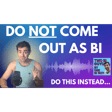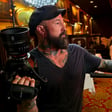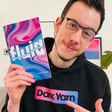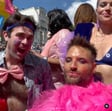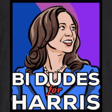
Bi+ Stories Matter with Aaron Hammersly (Season Finale!)
This week features part two of my chat with Aaron Hammersly, filmmaker and production executive at Disney, board member on the LA Bi+ Task Force, and outspoken advocate for the LGBTQ+ community, working especially for more inclusive representation in front of and behind the camera. In this episode, we continued discussing “Bi+ Narratives: A Guide to Authentic Representation in Storytelling”, the first comprehensive guide to portraying bi+ characters in film and television, which Aaron co-authored, diving into dozens of case studies of bi+ representation in the current film & TV landscape (like Schitt’s Creek, Heartstopper, Game of Thrones, Call Me By Your Name, Baby Reindeer, and many more), what they’re doing well, what’s backwards or harmful, what’s missing, and what we’d ideally like to see in the future. We also discussed the “manic pixie bi boy” trend, and finally we went through the guide’s test for creatives to determine if what they’re producing is authentic Bi+ representation.
Thanks for listening to season 8 of Two Bi Guys (By One Bi Guy)! We’ll be back in 2025!
Get Magic Mind at 50% off with this Black Friday offer, available only through my link until December 6th: https://magicmind.com/biguysbf
Follow Aaron on IG: https://www.instagram.com/secretsyrin/
The Bi+ Narratives Guide: https://www.rewritethebiline.com/bi-test
“Manic Pixie Bi Boys”: https://www.queermajority.com/essays-all/the-manic-pixie-bi-boys


